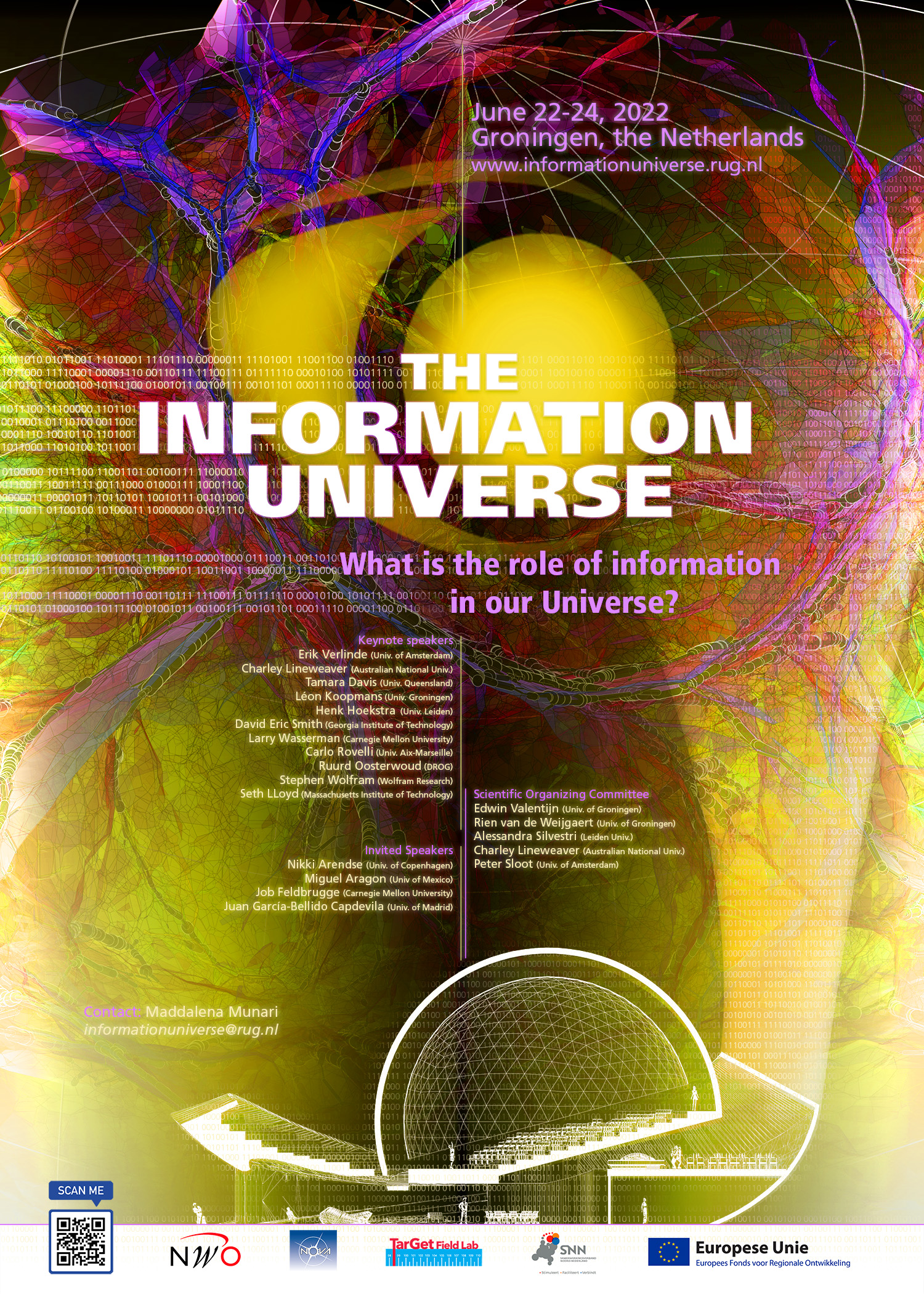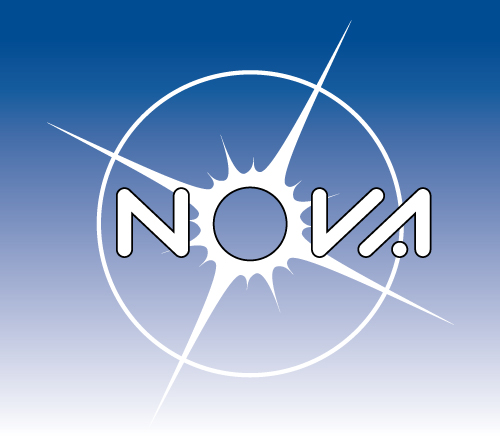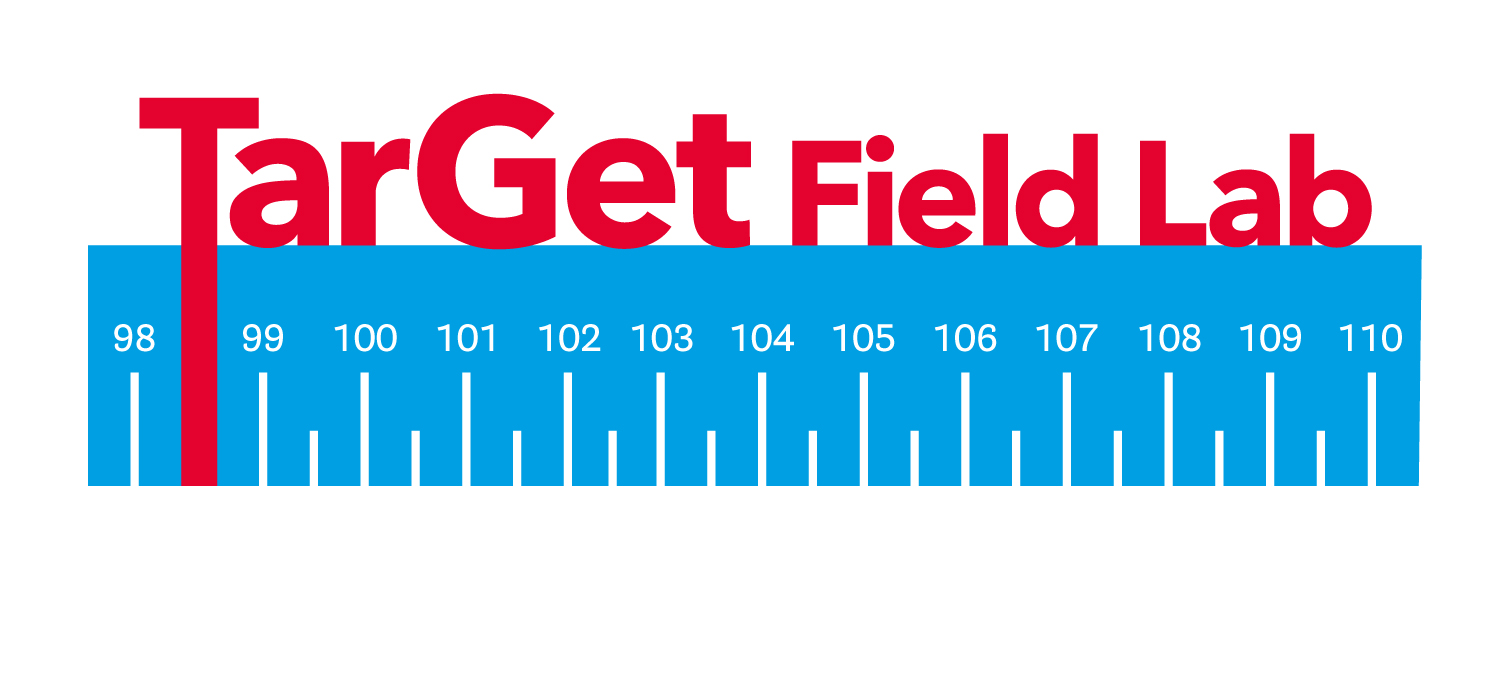News on the 2022 edition
We are happy to announce the next Information Universe conference , edition 4th. It will take place on 22-24 June 2022 in DOTliveplanetarium in Groningen (NL). Keynote speakers include Larry Wasserman, Charley Lineweaver, Carlo Rovelli, Tamara Davis,Erik Verlinde, Ruurd Oosterwoud, Seth LLoyd, Stephen Wolfram (on-line), Leon Koopmans, David Eric Smith and Henk Hoekstra.
We hope to see you then.
Conference topics
Here you can check the topics of the conference and here is the 2022 conference website.Registration
The Registration (payment required) is open.Deadlines
Note the following deadlines for registration and abstract submission:- Abstract Submission: 1st March
- Notification for abstract and contribution acceptance: 1st April
- Early Bird Registration deadline: 1st May
Follow us
You can watch all presentations of the last editions of the IU on our YouTube channel. Enjoy and share!
The aim of the IU Conference Series
The key topic of the IU conference series is: “What is the role of information in the Universe and its description?”. In an epoch where scientists need to handle Big Data and simulations, find highly organized systems in nature and grapple with the role of information in physics and other sciences, this appears to be one of the more fundamental questions that needs to be answered in order to understand the world around us. The Information Universe conference intends to unite various approaches, addressing the fundamental role of information both in nature (in vivo) and in data analysis, theory and computer modelling (in vitro).
The conference will approach the key role of information from the point of view of several disciplines: e.g. cosmology, physics, mathematics, life sciences, computer science (including quantum computing) and neuroscience. The deeper role of information is formulated in different ways by these various disciplines, leading to a multitude of fundamental questions such as:
- Is there a deeper physical description of space-time and gravity based on information?
- The Big Data Universe and our Universe: are our numerical simulations and Big Data repositories (in vitro) different from real natural system (in vivo)?
- Will quantum systems dominate the future of computing?
- What is the role of information in highly organized complex life systems and genetics?
- What will be the role of machine learning in the future of science?
- How will big datasets from new experiments, such as Euclid, help us in understanding fundamental cosmological problems: dark matter, dark energy, inflation and structure formation?
- Is the universe one big information processing machine, a hologram, one of many?
The conference will be held in the 230 seats planetarium theatre in Groningen, which provides an inspiring immersive full dome display, e.g. numerical simulations of the formation of our Universe, and anything else our presenters wish to bring in. The digital planetarium setting will be used to visualize the theme with modern media.








